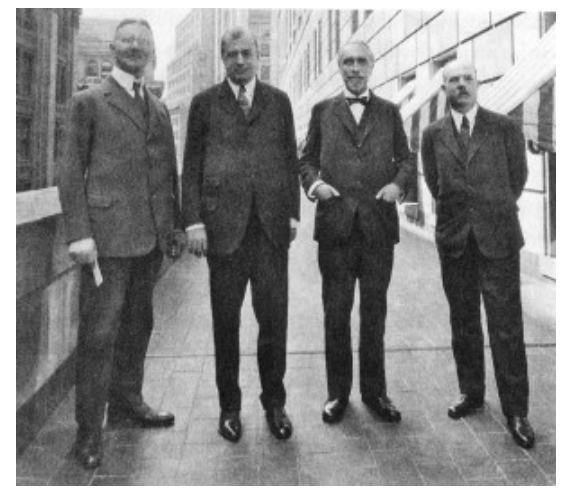Lost in the Shuffle
Courtesy of Michael Batnick
 In 2009, the world’s economy was experiencing pain like it hadn’t seen since the 1930s. So it’s no wonder that a new book on finance might have slipped through the cracks. Lords of Finance: The Bankers Who Broke the World
In 2009, the world’s economy was experiencing pain like it hadn’t seen since the 1930s. So it’s no wonder that a new book on finance might have slipped through the cracks. Lords of Finance: The Bankers Who Broke the World, was published in January 2009, and although it received a Pulitzer Prize, it’s not one you see on many people’s lists.
Cleaning up the world and rebuilding the global monetary system after World War I had consequences that would be felt for decades. The reparations that Germany was forced to accept were absolutely crippling. Their currency was destroyed and their whole economy ravaged. Hyper-inflation happened recently in Zimbabwe, but the difference is that in the 1920s, Germany was the third largest economy in the world. Zimbabwe and its $16 billion worth of GDP could evaporate entirely and the global economy wouldn’t know the difference. Here is the author with some eye-popping numbers on the German Mark in the 1920s.
Over the next few months, Germany experienced the single greatest destruction of monetary value in human history. By August 1923, a dollar was worth 620,000 marks and by early November 1923, 630 billion…It was not simply the extraordinary numbers involved; it was the dizzying speed at which prices were now soaring. In the last three weeks of October, they rose ten thousandfold, doubling every couple of days. In the time that it took to drink a cup of coffee in one of Berlin’s many cafes, the price might have doubled. Money received at the beginning of the week lost nine-tenths of its buying power by the end of the week.
Liaquat Ahamed does a masterful job in telling the story of the difficult choices that countries faced in the aftermath of the war.
A simple analogy of the choice between deflation and devaluation might be that of the man who has put on weight and is having a hard time fitting into his clothes. He can either choose to lose the weight- that is, deflate– or alternatively accept that his larger waistline is nor irreversible and have his clothes altered– that is, devalue. Whether to deflate or devalue became the central economic decision for every country after the war. The burden of deflation fell on workers, businesses, and borrowers, that of devaluation on savers. The fate of the world economy would hinge over the next two decades on which path each country took. The United States and Britain took the route of deflation, Germany and France that of devaluation.
This book was published in the wrong place, at the wrong time. But if this interests you, I highly recommend you give it a go.
Source:



